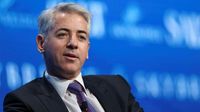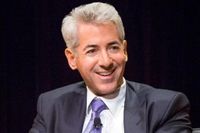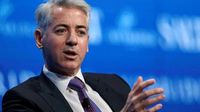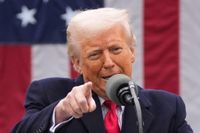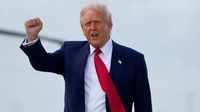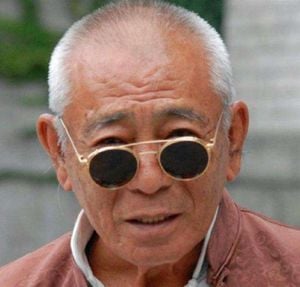As global markets reacted sharply to President Donald Trump’s sweeping new tariffs, billionaire investor Bill Ackman has urged foreign leaders to engage with the U.S. president without delay. Following the announcement of reciprocal tariffs that could reach as high as 50%, Ackman, the CEO of Pershing Square Capital Management, emphasized the urgency of negotiations in a post on social media platform X.
"My advice to foreign leaders is that if you have not already reached out to President Trump, you need to do so immediately," Ackman stated. He characterized Trump as a dealmaker who views the world through the lens of transactions, suggesting that countries that respond with additional tariffs would face severe repercussions.
The market response to Trump’s tariffs was immediate and severe. On April 3, 2025, Apple Inc. saw its shares plummet by 9.25%, NVIDIA Corp. fell by 7.81%, and Amazon.com Inc. dropped by 8.98%. The S&P 500 index dropped 4.84%, marking its worst day since June 2020, while the Nasdaq fell by 5.97% and the Dow Jones Industrial Average tumbled by 3.98%, a staggering 1,700-point drop.
Commerce Secretary Howard Lutnick weighed in, predicting that the market reaction would be temporary. "I expect most countries to start to really examine their trade policy towards the United States," he remarked, indicating that America’s trading partners would likely adjust their policies in response to the tariffs.
Meanwhile, Ray Dalio, another billionaire investor, warned of potential "abrupt, unconventional changes" in the market due to the tariffs, which he noted could generate revenue for the U.S. while simultaneously decreasing global efficiency and creating stagflationary pressures. China has already threatened countermeasures, labeling Trump’s actions as "typical unilateral bullying."
In a broader context, Trump’s tariff plan includes a 10% baseline tariff on nearly all countries, with significantly higher rates for specific nations: 34% on China, 20% on the European Union, and 46% on Vietnam. The tariffs on auto imports have also taken effect, prompting Stellantis to pause production at its plants in Canada and Mexico.
Eric Trump, the president’s son, echoed Ackman’s sentiments, cautioning that countries should not delay in negotiating with the U.S. "I wouldn’t want to be the last country that tries to negotiate a trade deal with Trump. The first to negotiate will win; the last will absolutely lose," he wrote on X.
In the UK, Prime Minister Keir Starmer expressed a desire to negotiate a deal that could protect British firms from the worst impacts of the tariffs. He set a deadline of May 1 for consultations on a potential tit-for-tat response, highlighting the seriousness of the situation. Starmer stated, "I accept that we need to go further. I accept that we need to preserve our options, which is why all options are on the table."
Italian Prime Minister Giorgia Meloni also indicated her country would strive for an agreement with the United States. European Commission President Ursula von der Leyen criticized the tariffs as a "major blow to the world economy" and vowed to implement countermeasures if negotiations fail.
Canadian Prime Minister Mark Carney announced that Canada would impose a 25% tariff on vehicles not compliant with the United States-Mexico-Canada Agreement (USMCA), stating, "We take these measures reluctantly. And we take them in ways that is intended and will cause maximum impact in the United States and minimum impact in Canada."
According to the conservative advocacy group Advancing American Freedom, Trump’s tariffs could cost American families an estimated $3,500 a year, effectively erasing years of wage increases for many households. The group warned that significant purchases, such as homes and cars, could see price increases of up to $7,000.
As the stock market continued to react negatively, Trump maintained a sense of optimism about the economic fallout. "I think it is going very well," he said, likening the market response to a surgical operation. "It was an operation. [It is] like when a patient gets operated on and it's a big thing. I said this would exactly be the way it is," he added, claiming that "six or seven trillion" dollars would be coming into the U.S. as a result of his policies.
While some business leaders, including Ackman, have urged swift negotiations, others have expressed concern over the potential long-term impacts of the tariffs. Brad Gerstner, CEO of Altimeter Capital, described the plan as more drastic than anticipated and cautioned that it could have lasting negative repercussions for both the U.S. and the global economy.
As the situation develops, the impact of the tariffs is already being felt across various industries. Companies like Nissan have paused production in response to the tariffs, while analysts predict that sectors such as hospitality and retail could face significant challenges due to rising costs of materials and goods.
In the face of these challenges, the Federal Trade Commission has warned companies against price-fixing in light of the tariffs, stating that they will be closely monitoring compliance to ensure fair competition. "These necessary tariffs should not be interpreted as a green light for price fixing or any other unlawful behavior," FTC Chair Andrew Ferguson said.
As global leaders grapple with the implications of Trump’s tariff policies, many are left wondering about the long-term effects on international trade relations and the broader economy. The coming weeks will likely reveal whether Ackman’s call for immediate negotiations will lead to a swift resolution or if the world will brace for a prolonged trade conflict.
